- Home
- Quizzes
- My Quiz Activity
- Newsletters
- Sports Betting
- MY FAVORITES
- Add Sports/Teams
- SPORTS
-
NFL
- NFL Home
- Arizona Cardinals
- Atlanta Falcons
- Baltimore Ravens
- Buffalo Bills
- Carolina Panthers
- Chicago Bears
- Cincinnati Bengals
- Cleveland Browns
- Dallas Cowboys
- Denver Broncos
- Detroit Lions
- Green Bay Packers
- Houston Texans
- Indianapolis Colts
- Jacksonville Jaguars
- Kansas City Chiefs
- Las Vegas Raiders
- Los Angeles Chargers
- Los Angeles Rams
- Miami Dolphins
- Minnesota Vikings
- New England Patriots
- New Orleans Saints
- New York Jets
- New York Giants
- Philadelphia Eagles
- Pittsburgh Steelers
- San Francisco 49ers
- Seattle Seahawks
- Tampa Bay Buccaneers
- Tennessee Titans
- Washington Commanders
-
MLB
- MLB Home
- Arizona Diamondbacks
- Atlanta Braves
- Baltimore Orioles
- Boston Red Sox
- Chicago White Sox
- Chicago Cubs
- Cincinnati Reds
- Cleveland Guardians
- Colorado Rockies
- Detroit Tigers
- Houston Astros
- Kansas City Royals
- Los Angeles Angels
- Los Angeles Dodgers
- Miami Marlins
- Milwaukee Brewers
- Minnesota Twins
- New York Yankees
- New York Mets
- Oakland Athletics
- Philadelphia Phillies
- Pittsburgh Pirates
- San Diego Padres
- San Francisco Giants
- Seattle Mariners
- St. Louis Cardinals
- Tampa Bay Rays
- Texas Rangers
- Toronto Blue Jays
- Washington Nationals
-
NBA
- NBA Home
- Atlanta Hawks
- Boston Celtics
- Brooklyn Nets
- Charlotte Hornets
- Chicago Bulls
- Cleveland Cavaliers
- Dallas Mavericks
- Denver Nuggets
- Detroit Pistons
- Golden State Warriors
- Houston Rockets
- Indiana Pacers
- Los Angeles Clippers
- Los Angeles Lakers
- Memphis Grizzlies
- Miami Heat
- Milwaukee Bucks
- Minnesota Timberwolves
- New Orleans Pelicans
- New York Knicks
- Oklahoma City Thunder
- Orlando Magic
- Philadelphia 76ers
- Phoenix Suns
- Portland Trail Blazers
- Sacramento Kings
- San Antonio Spurs
- Toronto Raptors
- Utah Jazz
- Washington Wizards
-
NHL
- NHL Home
- Anaheim Ducks
- Arizona Coyotes
- Boston Bruins
- Buffalo Sabres
- Calgary Flames
- Carolina Hurricanes
- Chicago Blackhawks
- Colorado Avalanche
- Columbus Blue Jackets
- Dallas Stars
- Detroit Red Wings
- Edmonton Oilers
- Florida Panthers
- Los Angeles Kings
- Minnesota Wild
- Montreal Canadiens
- Nashville Predators
- New Jersey Devils
- New York Islanders
- New York Rangers
- Ottawa Senators
- Philadelphia Flyers
- Pittsburgh Penguins
- San Jose Sharks
- Seattle Kraken
- St. Louis Blues
- Tampa Bay Lightning
- Toronto Maple Leafs
- Vancouver Canucks
- Vegas Golden Knights
- Washington Capitals
- Winnipeg Jets
- NCAAF
- NCAAM
- Boxing
- Entertainment
- Lifestyle
- Golf
- MMA
- Soccer
- Tennis
- Wrestling
- More Sports
- RESOURCES
- My Account
- YB on Facebook
- YB on Twitter
- YB on Flipboard
- Contact Us
- Privacy Policy
- Terms of Service

The 20 most infamous "jumping the shark" moments
In some ways, television is a medium based on longevity. After all, the longer a series stays on the air, the more successful it is. A long run, however, can be a bit of a double-edged sword, particularly when a series has to make imaginative leaps to keep viewers tuning in for season after season. Sometimes, these pay off, catapulting a given show into new realms of success and artistic payoff. At others, however, such changes end up pushing the show over the edge, so it’s worth looking at some of the most infamous “jumping the shark” moments in television (including, of course, the moment that spawned the phrase).
'Scrubs,' most of Season 9

It’s no small thing for a sitcom to have a strong eight seasons, but this is what Scrubs managed to attain. However, all good things must end, and season nine marks the moment when things went irrevocably sideways. In a mind-boggling decision, the series not only moved the show’s setting to a different hospital but also replaced most of the cast. This was both a grievous disservice to the show and the fandom. Unsurprisingly, it never really recovered from the change, and this was the show's final season.
'Designing Women,' when Suzanne left

It’s easy to identify the moment when Designing Women — the hit sitcom about four women who run an interior design firm in Atlanta, Georgia — jumped the shark. The very first episode of the sixth season marked the departure of Delta Burke, who had portrayed the feisty Suzanne Sugarbaker. Given how central she was to the series’ chemistry, her departure changed the show for the worse. The subsequent departure of Jean Smart, who had played the lovable and naive Charlene, also fatally weakened the show. Not even the presence of Jan Hooks, Julia Duffy, and Judith Ivey could save it.
'Will & Grace,' when Leo was introduced
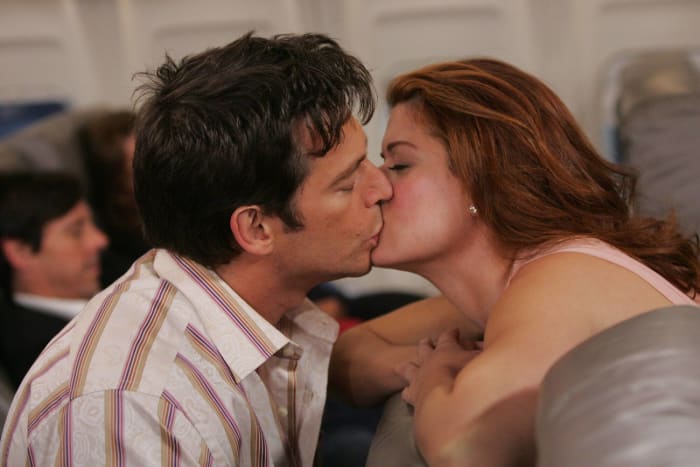
In this era of heightened LGBTQ+ visibility in popular culture, it’s easy to forget just how groundbreaking Will & Grace was when it premiered. Its central foursome of Will, Grace, Jack, and Karen were beloved parts of the TV landscape, and their dynamic was a key part of the show’s appeal. Unfortunately, in the fifth season, the show introduced the doctor Leo (played by Harry Connick, Jr), and nothing was ever the same. His presence disrupted the central chemistry, and his romance with Grace put a strain on Grace's friendship with Will — so much so that they ended up not speaking to one another for years. Sometimes, it’s best to leave well enough alone.
'Roseanne,' when the family won the lottery

In its prime, Roseanne was one of the best sitcoms on television. Unlike many other series, it actually gave working-class families their moment in the sun, showing what it was like for blue-collar folks at the end of the 20th century. In the ninth season, the show jumped the shark in spectacular fashion, as the family wins the lottery and everything goes completely off the rails. Not only that, but it’s then revealed in the finale that the entire season itself was just a dream and that, in fact, Dan had died at the end of the previous season, which adds insult to injury.
'Glee,' when Rachel and Kurt moved to New York

For a time, Ryan Murphy’s Glee was one of the most popular shows on television. An infectious mix of comedy, teen drama, and musical, its story about a beleaguered glee club and its various members was tailor-made for the late aughts and early 2010s, and for the first two seasons, it found the sweet spot of its success. The third season was weak, but the show truly jumped the shark when Kurt and Rachel moved to New York. From then on, the series simply kept adding new characters to the original high school roster, losing more focus as time passed.
'That ‘70s Show,' when Eric and Kelso left
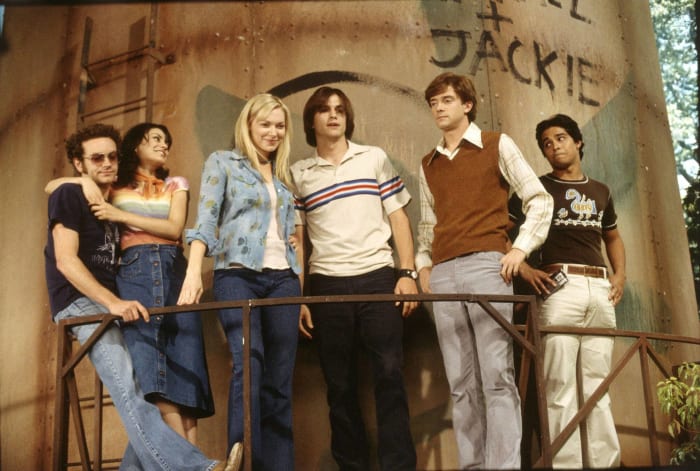
That ‘70s Show began in the ‘90s but ended in the ‘00s, and for much of that time, it was a very funny and charming teen sitcom. However, it took some twists and turns and endured a few too many cast changes. Arguably, the most notable jumping-the-shark moment was when Ashton Kutcher’s Kelso left the show. Given how central he was to the central chemistry of the ensemble, it was an absence that was never completely filled, and matters only got worse when Topher Grace’s Eric also left, two absences that the show could never fill.
'Sherlock,' when Sherlock went back to Victorian England on a drug trip
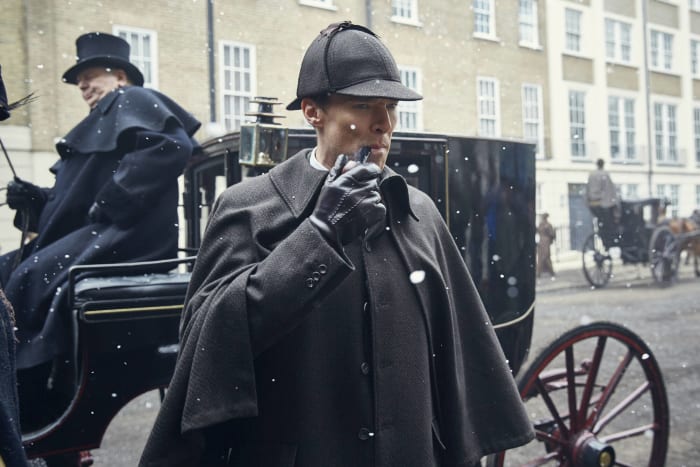
There’s an undeniable chemistry between Benedict Cumberbatch and Martin Freeman in Sherlock, a modern-day retelling of the beloved stories of Arthur Conan Doyle. The two actors are perfectly cast in their roles, and the first two seasons made for marvelous television watching. However, the Christmas special that followed the third season featured the title character using drugs to catapult his mind to his Victorian past. It might seem like a fun conceit on paper, but on screen, it ends up being a far-fetched scenario that derailed what plausibility the series had managed to maintain.
'House of Cards,' when Frank became President

From the beginning, House of Cards was a show that delighted in pushing the envelope in terms of narrative believability. For a time, it was a lot of fun to see what new scheme Kevin Spacey’s Frank Underwood would manage to cook up as he sought out ever more power for himself. Even in a show that relished the outlandish, however, the moment when Frank Underwood becomes president is, in its own way, a jumping-the-shark moment. After that, everything becomes just another piece of theater because, having attained what he so long sought, there’s nowhere else interesting for Frank to go. The rest of the series, including Underwood’s death, felt deeply contrived.
'Parks and Recreation,' when Chris and Ann left

Parks and Recreation was one of the best feel-good shows on television for the entirety of its run. Leslie Knope and company were the type of people the audience could truly cheer for and care about, and the show hit its stride in the second season. Though it didn’t have the decline in quality that many shows face, the sixth season was a bit of a collective jumping-the-shark moment, mainly since both Chris and Ann Perkins left the show. Unlike many shows that jump the shark, however, the series still gave its characters the type of farewell they and the audience deserved.
'Game of Thrones,' Gendry’s run

When Game of Thrones premiered in 2011, it marked a true watershed moment in TV, proving that fantasy could make for compelling watching. It was going strong until the eighth season, but it quickly became clear that the showrunners were at something of a loss. Though Daenerys’ turn to madness is often seen as the nadir, the signs are there, particularly the instant when Gendry is ordered to run back to the Wall, even though they are miles away. All of this was truly a shame, and these vexing moments tarnished the series’ reputation for years.
'Dexter,' when Deb found out Dexter was a serial killer
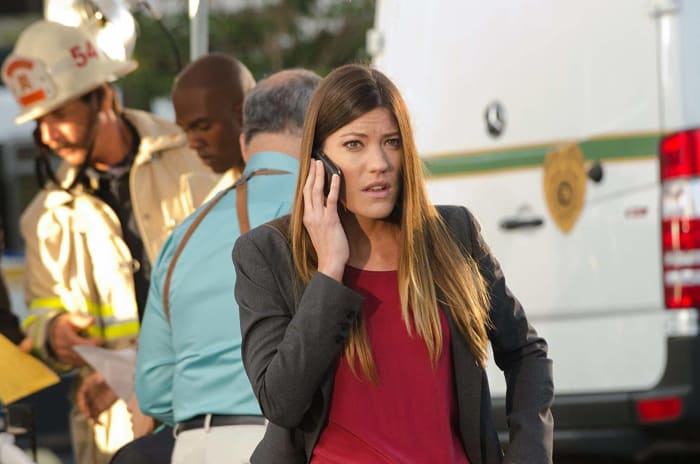
Like many of the other series of the 2000s and 2010s, Dexter was very much about an antihero. One doesn’t become more antiheroic than the title's character, a serial killer who targets…other killers. It was a genius conceit, and Michael C. Hall was at the top of his game in the title role. The show arguably jumped the shark when his sister, Deb, found out he was a serial killer and vowed to watch out for him so he would stop murdering people. Unfortunately, this particular plot point was antithetical to the whole point of the show, which makes one wonder why it was included in the first place.
'Downton Abbey,' when Matthew died

Downton Abbey was a beloved part of the TV landscape for its first several seasons. How could it not be when it was juicy melodrama and sudsy costume drama all rolled into one? The third season finale, however, saw the death of the main character, Matthew, right after he’d found happiness with Mary and they were about to be parents. It was like a punch in the gut, and it also set up some narrative problems the show struggled to resolve in its remaining seasons, particularly given the extent to which so many people had invested themselves in the romance and love between Mary and Matthew.
'American Horror Story,' when Jessica Lange departed

American Horror Story has come to be seen as an American institution. Now into its twelfth season, the horror anthology shows no signs of slowing down (even if Ryan Murphy is no longer the showrunner). It was campy fun for its first four seasons, but things changed when Jessica Lange left the show. She’d been so key to the appeal of the first several seasons — creating memorable characters like Sister Jude of Asylum — t hat not even introducing Lady Gaga for Hotel was enough to save the show.
'Buffy the Vampire Slayer,' when Buffy was resurrected
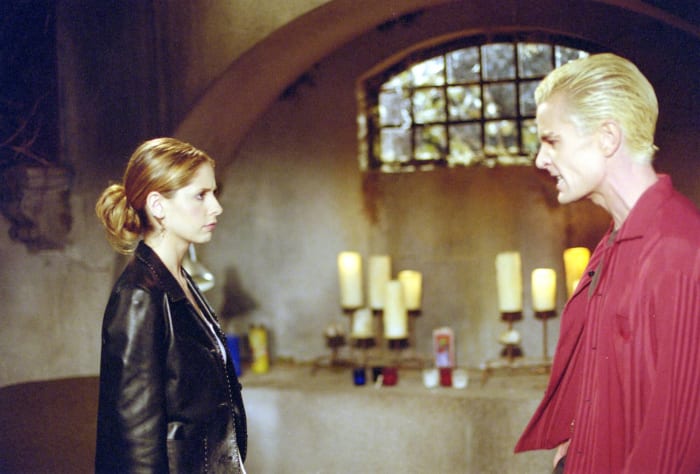
For its first few seasons, Buffy the Vampire Slayer was like almost nothing else on television. Part teen drama, part comedy, and part horror, it also featured some great performances and sharp writing from series creator Joss Whedon. Yet even a show as successful and well-written as this one had its share of narrative problems, and the resurrection of Buffy in the sixth season is arguably the nadir. While it’s easy to see why the show went this route — the show is called Buffy, after all — it did rather negate the emotional impact of her sacrifice and seemed to render the whole thing moot.
'Grey’s Anatomy,' the musical episode

Grey’s Anatomy is now one of the longest-running medical dramas on television, and it has made the most out of its blend of melodrama and medicine. Even though it is still going strong, arguably, its jumping-the-shark moment was when it had its very own musical episode. Some shows manage to pull off this blending of genres, but it has to be said that this was a bit of a misstep. Even though the series managed to get back into its groove after this misbegotten episode, this was still a sign that something had gone more than a little sideways.
'Once Upon a Time,' when the first season ended

In its first season, Once Upon a Time was one of the most imaginative series on television, with its central premise about a young woman, Emma, who finds herself in a village whose inhabitants are really the inhabitants of a magical land who have been placed under a curse. The first season was a fun mystery as she got closer to solving the central enigma and lifting the curse. Unfortunately, the breaking of the spell at the end of the first season was, in its own way, a jumping-the-shark moment, as it left the series struggling to find a new sense of identity. It never quite recaptured the unique magic of that first season.
'Dallas,' the revelation that an entire season was a dream
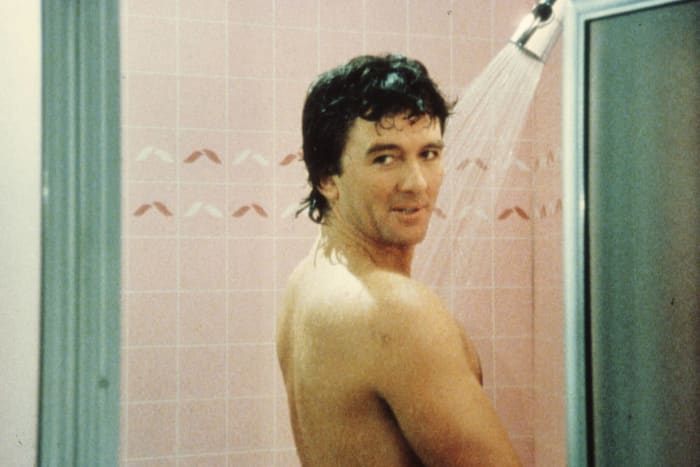
If there’s one scenario that can sink a series, it’s the dream sequence. Perhaps no series demonstrates this more than Dallas, the popular 1970s and 1980s soap opera. In this case, an entire season was declared to have been a dream all along, thus practically erasing the events of the ninth season, most notably the death of Patrick Duffy’s character, Bobby James Ewing. Though it was pleasant to see the return of Duffy, it’s still startling to see an entire season rendered moot, and it’s a creative decision that has become infamous in the history of television (and it’s even spoofed in an episode of Family Guy).
'True Blood,' when Sookie was revealed to be a fairy

Given the many zany twists and turns that True Blood took over the course of its run, it’s a bit hard to find the exact moment it seemed to run out of creative juice. The real nadir, however, was when Sookie Stackhouse — the series' protagonist whose ability to read minds caused her no small amount of trouble — was revealed to be part fairy. While this was true to the novels, and while the series had introduced all manner of supernatural creatures by this point, this just started verging into the realm of the ridiculous, and the weak and undisciplined narrative choices made the problem worse.
'The Office,' when Michael Scott left
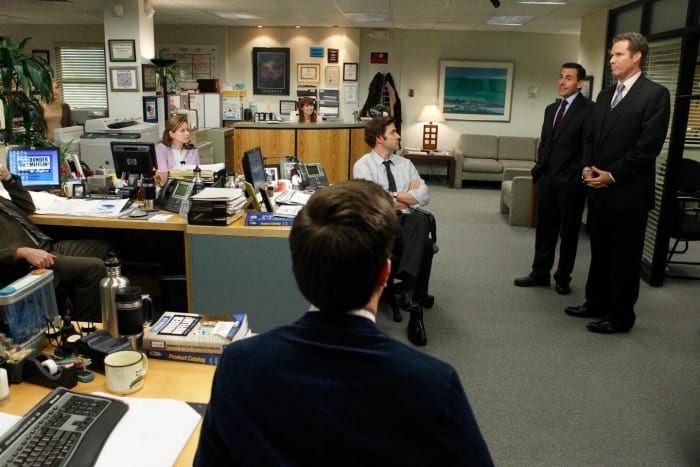
The Office has the distinction of being a successful mix of cringe and endearing, and much of its early success can be attributed to Steve Carell’s brilliant performance as Michael Scott. As awkward as he was, however, he was also the connective tissue that held the cast members together, and it’s not going too far to say that he was the heart of the show. However, all good things come to an end, and he left in season seven. Though the series carried on without him and was still fun, it was clear that something vital had gone out of it.
'Happy Days,' the jumping-the-shark moment

It’s hard to think of a more infamous moment in TV history than the one that gave birth to the term “jumping the shark.” Though a beloved sitcom for much of its run, Happy Days started to run out of ideas as it went on. In the fifth season, it went completely off the rails when Fonzie, arguably one of the coolest characters ever appearing on the small screen, water-skied over a shark. This has come to be understood as the moment when the show demonstrated a lack of good storytelling ideas, though it would actually continue for several more seasons.
Thomas J. West III earned a PhD in film and screen studies from Syracuse University in 2018. His writing on film and TV has appeared at Screen Rant, Screenology, FanFare, Primetimer, Cinemania, and in a number of scholarly journals and edited collections. He co-hosts the Queens of the B's podcast and writes a regular newsletter, Omnivorous, on Substack. He is also an active member of GALECA, the Society of LGBTQ Entertainment Critics.
More must-reads:
Trending in Entertainment
Customize Your Newsletter
 +
+
Get the latest news and rumors, customized to your favorite sports and teams. Emailed daily. Always free!
Use of this website (including any and all parts and
components) constitutes your acceptance of these
Terms of Service and Privacy Policy.

